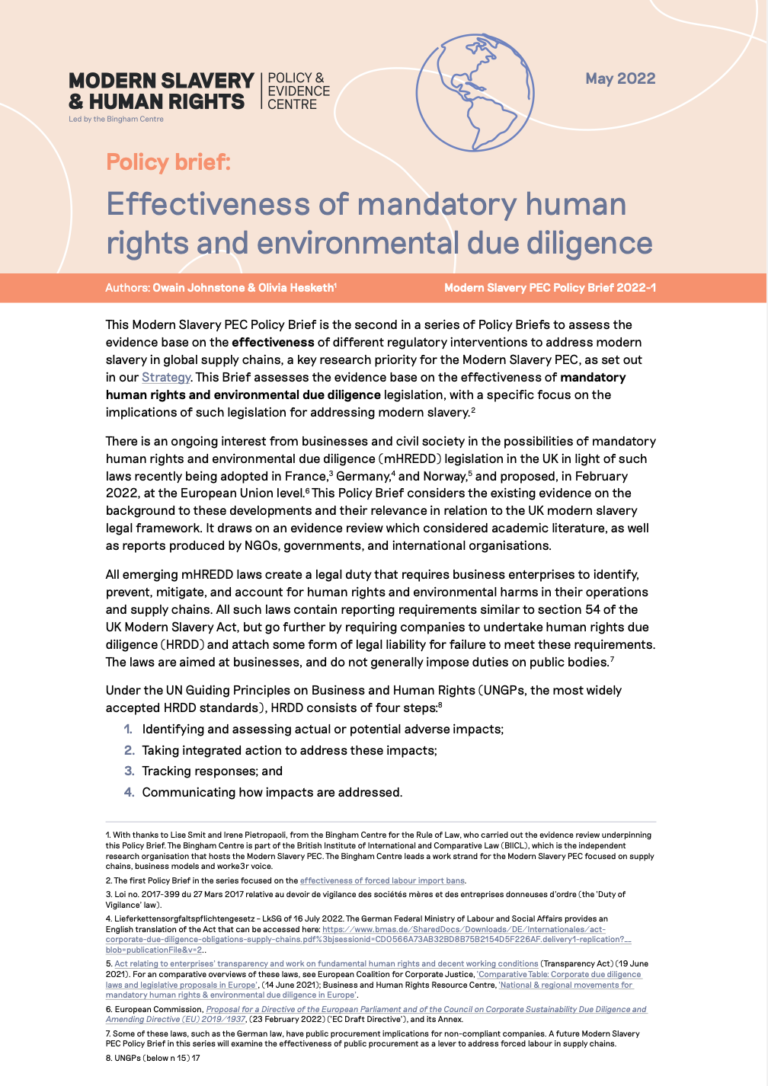This Modern Slavery PEC Policy Brief is the second in a series of Policy Briefs to assess the evidence base on the effectiveness of different regulatory interventions to address modern slavery in global supply chains, a key research priority for the Modern Slavery PEC, as set out in our Strategy. This Brief assesses the evidence base on the effectiveness of mandatory human rights and environmental due diligence legislation, with a specific focus on the implications of such legislation for addressing modern slavery.
This Modern Slavery PEC Policy Brief is the second in a series of Policy Briefs to assess the evidence base on the effectiveness of different regulatory interventions to address modern slavery in global supply chains, a key research priority for the Modern Slavery PEC, as set out in our Strategy. This Brief assesses the evidence base on the effectiveness of mandatory human rights and environmental due diligence legislation, with a specific focus on the implications of such legislation for addressing modern slavery.
There is an ongoing interest from businesses and civil society in the possibilities of mandatory human rights and environmental due diligence (mHREDD) legislation in the UK in light of such laws recently being adopted in France, Germany, and Norway, and proposed, in February 2022, at the European Union level. This Policy Brief considers the existing evidence on the background to these developments and their relevance in relation to the UK modern slavery legal framework. It draws on an evidence review which considered academic literature, as well as reports produced by NGOs, governments, and international organisations.

